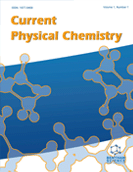Abstract
Developing new materials with specific properties is of crucial importance for the growing number of energy-related problems. Recently introduced graphene offers an attractive alternative to the commonly used materials for energy conversion and storage applications. However, despite its many extraordinary properties, pristine graphene is chemically inert and interacts weakly with many species of importance in the fields of metalion batteries, supercapacitors, fuel cells, and hydrogen storage. In order to meet the requirements for such applications, defects, such as vacancies, heteroatoms and functional groups, must be introduced on graphene. Density Functional Theory calculations have proven to be very useful not only for the description of materials performance but also for predicting which materials could be efficient for targeted applications. This article reviews the theoretical work done on the functionalized graphene-based materials for electrochemical energy conversion and storage applications.
Keywords: Graphene, energy, fuel cells, batteries, electrocatalysis, first principles calculations.
Graphical Abstract












